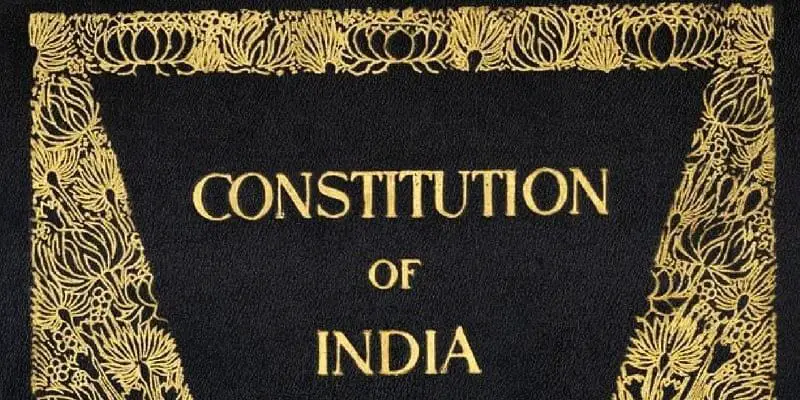

The philosophy of the Indian Constitution is deeply rooted in its commitment to justice, liberty, equality, and fraternity. It draws from various historical, cultural, and political ideologies, weaving together a unique framework that reflects India’s diverse and pluralistic society. This philosophy provides the guiding principles for governance and shapes the relationship between the state and its citizens. Here’s an overview of the key philosophical ideas embedded in the Indian Constitution:
1. Sovereignty
- The concept of sovereignty means that India is a self-governing nation with supreme authority over its internal and external affairs. The Indian Constitution reflects the idea that the people of India are the ultimate source of political power.
- The phrase “We, the people of India” in the Preamble reflects this popular sovereignty. It emphasizes that the authority of the government is derived from the consent of the governed.
2. Democracy
- The Indian Constitution enshrines democratic governance. India follows a parliamentary system of democracy, where the executive is accountable to the legislature, and through it, to the people.
- The essence of democracy in India is based on universal adult suffrage, ensuring that every citizen above the age of 18 has the right to vote, regardless of caste, creed, gender, or economic status.
- Democracy in India also includes features like representative government, free and fair elections, and the rule of law.
3. Secularism
- India is a secular state, meaning that the state does not recognize any religion as its official religion and treats all religions equally.
- The Constitution guarantees freedom of religion under Articles 25 to 28, allowing individuals to freely practice, profess, and propagate any religion.
- Secularism in India is unique because, unlike the Western concept of strict separation of religion and state, Indian secularism allows for a positive interaction with religion, while ensuring that no religion is given preferential treatment.
4. Justice: Social, Economic, and Political
- One of the core values of the Indian Constitution is justice—not just legal justice but also social, economic, and political justice.
- Social justice aims to eliminate social inequalities and discrimination, especially those based on caste, class, gender, and religion. The abolition of untouchability (Article 17) and provisions for affirmative action (Article 15 and 16) reflect this principle.
- Economic justice seeks to reduce income and wealth disparities. The Directive Principles of State Policy (DPSP) guide the state to promote policies that help bridge the gap between the rich and poor, ensuring equitable distribution of resources.
- Political justice ensures equal participation in the political process through democratic rights such as voting, contesting elections, and participating in public office.
5. Liberty
- The Constitution guarantees liberty through various Fundamental Rights (Articles 19-22). These rights include freedom of speech, expression, assembly, association, movement, residence, and the right to practice any profession.
- Liberty of thought and expression is critical to fostering a healthy democracy where individuals can freely discuss and debate ideas.
- Liberty in the Indian Constitution is not absolute but comes with reasonable restrictions to ensure that the exercise of individual freedoms does not harm public order, decency, or the rights of others.
6. Equality
- The principle of equality is enshrined in the Constitution to ensure that all citizens are treated equally under the law. Articles 14 to 18 specifically deal with equality:
- Article 14 guarantees equality before the law and equal protection of the law.
- Article 15 prohibits discrimination on the grounds of religion, race, caste, sex, or place of birth.
- Article 16 provides for equality of opportunity in matters of public employment.
- Social and economic equality is further promoted through reservations and affirmative action policies, particularly for historically disadvantaged groups like Scheduled Castes (SCs), Scheduled Tribes (STs), and Other Backward Classes (OBCs).
7. Fraternity
- The concept of fraternity refers to the promotion of a spirit of brotherhood among all citizens, transcending social, religious, and linguistic divisions.
- The Constitution emphasizes fraternity to assure the dignity of the individual and the unity and integrity of the nation. By encouraging a sense of solidarity among citizens, the Constitution aims to foster national unity in a diverse and pluralistic society.
8. Fundamental Rights and Duties
- Fundamental Rights (Articles 12-35) are an essential feature of the Constitution, providing citizens with individual freedoms and protections against state actions. These rights are crucial for the development of human personality and the protection of civil liberties.
- Fundamental Duties (Article 51A), added later through the 42nd Amendment, remind citizens of their responsibilities toward the nation and society. These duties, though not enforceable, aim to cultivate a sense of discipline and moral obligation among citizens.
9. Directive Principles of State Policy (DPSP)
- The Directive Principles (Part IV, Articles 36-51) serve as guidelines for the state in policy-making and governance. While not enforceable by courts, they reflect the ideals the state should strive to achieve to ensure social and economic democracy.
- The DPSPs aim to promote the welfare of the people by securing a just social order, ensuring equal pay for equal work, protecting the environment, and promoting education and public health.
- The socialist orientation of the Constitution is evident through these principles, which guide the state toward reducing economic inequalities and ensuring a minimum standard of living for all citizens.
10. Federalism
- The Indian Constitution establishes a federal structure, with powers distributed between the Centre and the states. However, it is described as a quasi-federal system, where the Centre holds more authority, especially during emergencies.
- This balance of power ensures that while local governments (states) can address regional needs, the central government retains enough power to maintain national unity and integrity.
11. Amendability and Flexibility
- The Indian Constitution is a dynamic document that allows for amendments (Article 368). This feature ensures that the Constitution can evolve and adapt to changing social, political, and economic circumstances.
- However, the basic structure doctrine, established by the Supreme Court in the Keshavananda Bharati case (1973), holds that certain fundamental principles—like the supremacy of the Constitution, secularism, democracy, and federalism—cannot be altered by amendments.
12. Humanism and Socialism
- The Constitution embodies elements of humanism by focusing on the dignity of the individual and protecting human rights. It promotes a system where the individual is not merely a subject of the state but a citizen with guaranteed rights and protections.
- While the term socialism was explicitly added to the Preamble by the 42nd Amendment, the Constitution has always emphasized socialist values. These are reflected in its commitment to social welfare, equitable distribution of resources, and the protection of marginalized groups.
Conclusion:
The Philosophy of the Indian Constitution is an intricate blend of democracy, secularism, justice, equality, and liberty, designed to reflect India’s diversity while ensuring national unity. It balances individual freedoms with the need for social justice and collective welfare. These philosophical principles not only govern the legal framework of India but also form the foundation of its social and political order. The Constitution, through its dynamic and adaptable nature, continues to evolve while holding true to its core values of promoting a just, equitable, and inclusive society.







